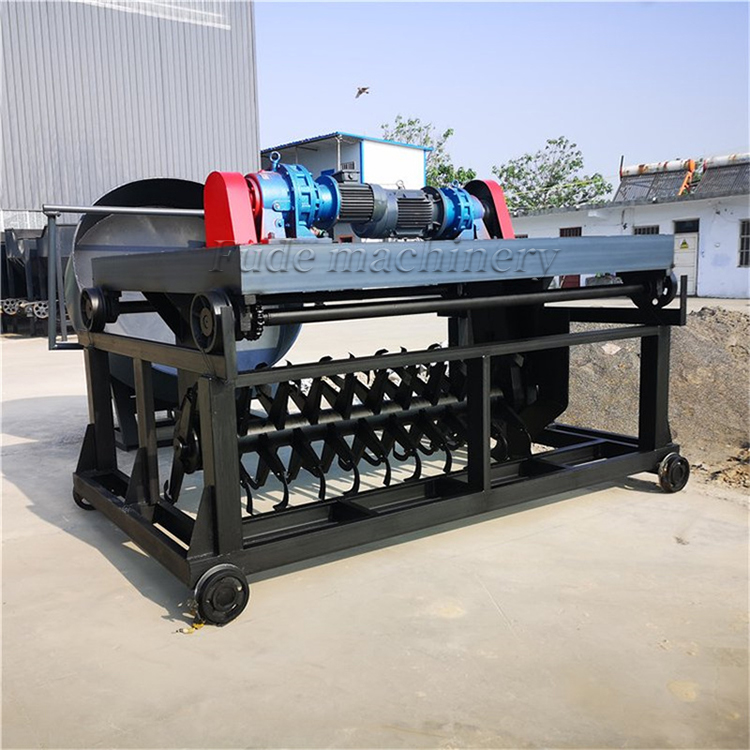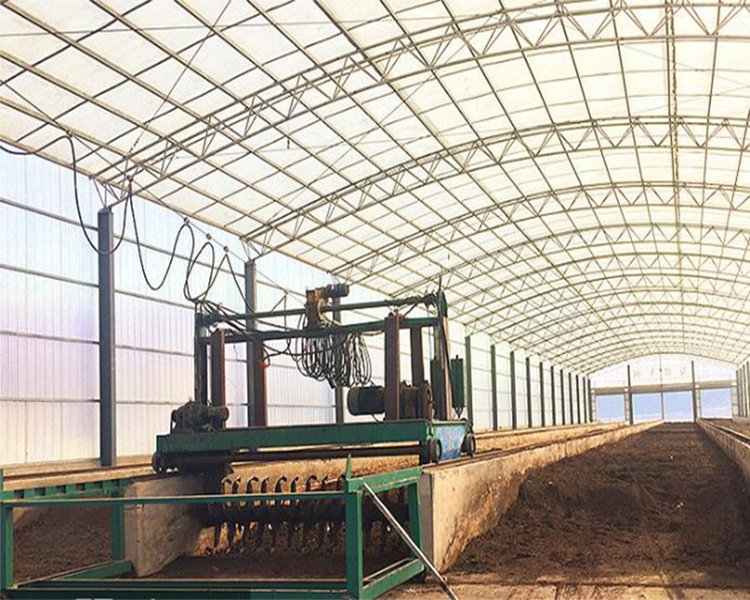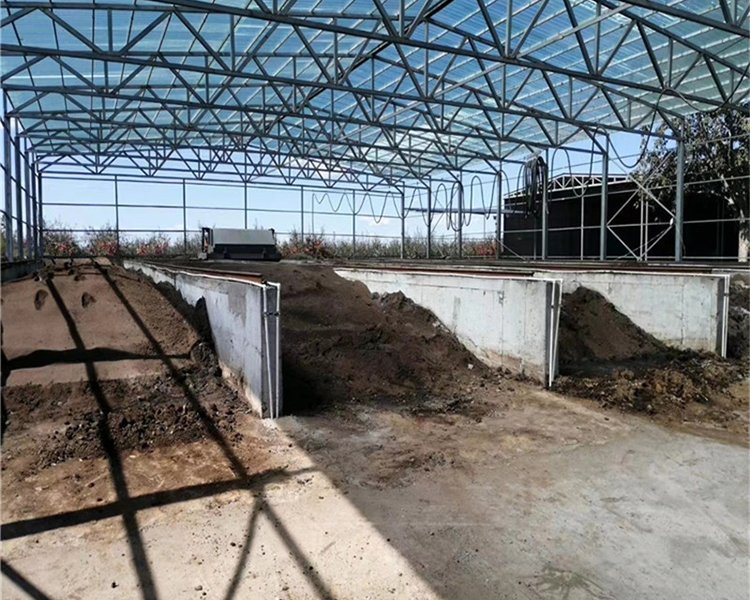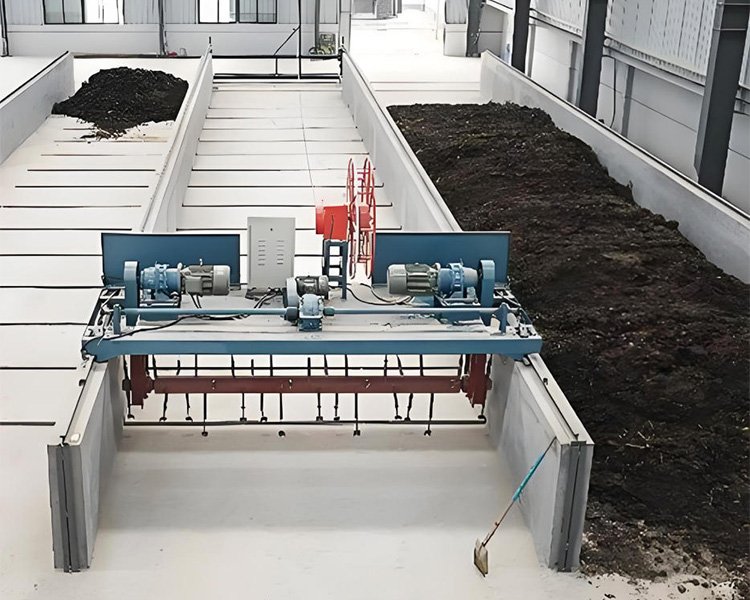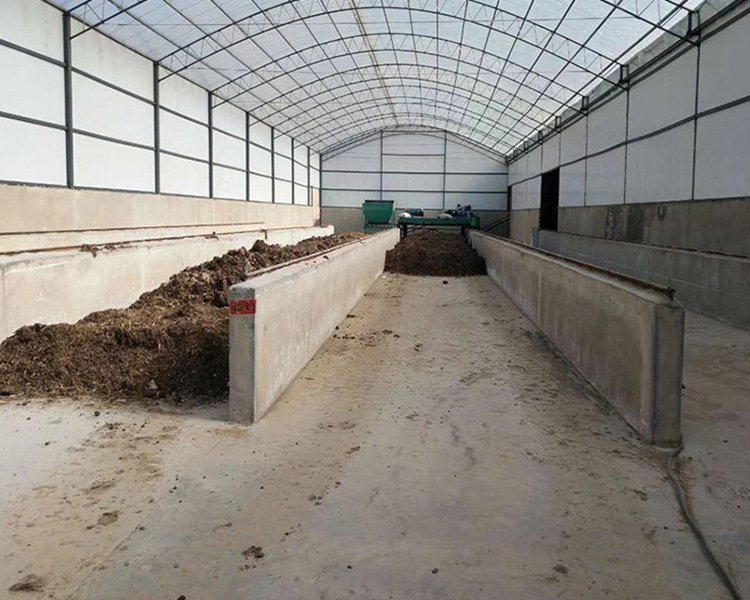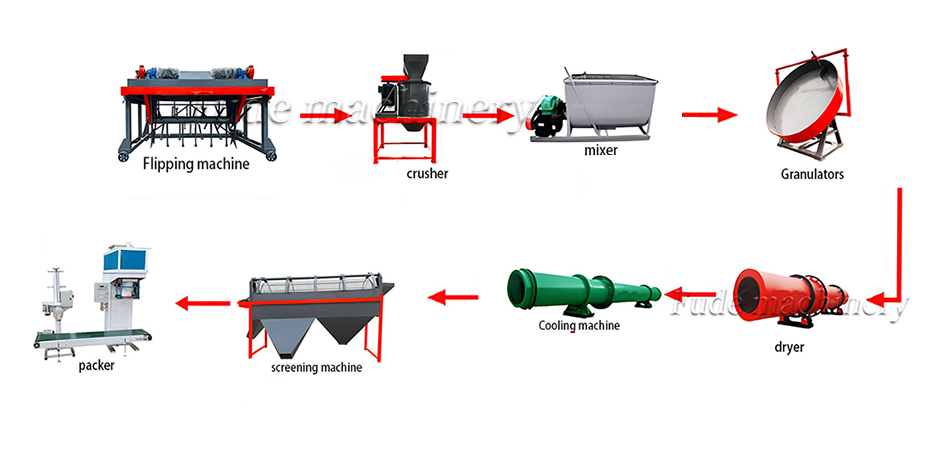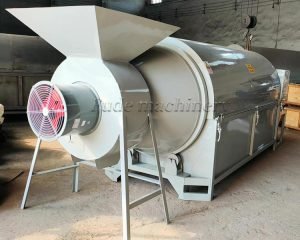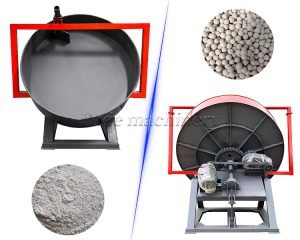You have a large amount of organic waste, like animal manure or agricultural straw. You know it can be turned into valuable fertilizer. But piling it up and waiting for nature to take its course is slow, smelly, and inefficient. At Fude Machinery, we build solutions for serious producers.
The groove type compost turner is a powerful machine designed specifically for large-scale, controlled composting. It runs on tracks along the top of concrete troughs, or “grooves.” This system transforms the slow, manual process of turning compost into a fast, automated, and highly efficient operation.
It is the core engine for any facility that needs to produce high-quality, fully composted organic fertilizer quickly and consistently.
Table of Contents
What Makes Groove Composting So Different?
Groove composting is a highly organized method where you place organic waste in long, parallel concrete channels, or “grooves.” The compost turner then travels along these grooves to mix the material. This is completely different from simply piling waste in open fields.
The primary difference is control and space efficiency. When you create windrows in an open area, they need a lot of space between them for machinery to pass. The piles are often not very deep, so you cannot process a large volume of material in a limited area. The groove composting system solves this problem.
You build permanent concrete walls to create deep troughs, often 1 meter to 1.5 meters deep and several meters wide. This allows you to stack the organic material much higher and denser. You are using your vertical space, not just your floor space. The groove type compost turner is designed to fit perfectly on top of these walls, running on rails.
It needs no extra space between the troughs. This means you can process significantly more organic waste in the same physical footprint, making it the perfect solution for facilities where land is valuable or limited. It creates a dedicated, organized, and permanent composting area.
How Does the Machine Actually Work?
The compost turner works by moving along the rails on the trough walls. A large, rotating drum with tough steel blades digs deep into the compost pile. It lifts, shatters, mixes, and then re-deposits the material behind it.
This powerful mechanical action is the key to accelerating the composting process. It is not just about flipping the material over. It performs three critical jobs at once.
- It Aerates the Pile: The “good” microbes that break down organic waste need oxygen to live and work fast. This is called aerobic fermentation. As the turner’s blades dig in and lift the material, they introduce massive amounts of fresh air deep into the pile. This prevents the pile from becoming a smelly, oxygen-starved anaerobic mess.
- It Thoroughly Mixes: A static pile will compost unevenly. The outside might be dry, and the inside might be too wet or too hot. The machine’s powerful turning action mixes everything together. It blends the wetter and drier parts, and it redistributes the microbes from active hot spots to the entire pile. This ensures every part of the material composts at the same rate.
- It Crushes and Loosens: Raw materials, especially after getting wet, can form dense clumps. The high-speed rotating drum acts like a powerful crusher, breaking up these clumps. This makes the material loose and fluffy, which further improves airflow and gives microbes more surface area to work on.
What Are the Main Benefits For Your Operation?
The key benefits are faster composting times, the ability to process more waste in less space, and a dramatic reduction in labor costs. This machine turns composting into a predictable, industrial process.
Investing in a groove type compost turner is an investment in efficiency and scale. For any serious organic fertilizer producer, it solves three of the biggest challenges in composting.
Benefit 1: Process More Waste in Less Space
This is perhaps the biggest advantage. Traditional windrows might be 1.5 meters high, but you need 3-4 meters of empty space between them. With a trough system, you can have a pile that is 3 meters wide and 1.5 meters deep right next to another pile of the same size. There is no wasted space. For a facility with a footprint of, say, 1000 square meters, a groove system can often process double or even triple the amount of material compared to an open windrow system. This deep pile fermentation is a game-changer for space optimization.
Benefit 2: Finish Composting in Just 2-3 Weeks
The machine’s consistent and thorough turning provides the ideal environment for aerobic microbes. By giving them a constant supply of oxygen and a well-mixed food source, their population explodes, and they work incredibly fast. A natural, unturned pile can take 6 months or more to decompose. A compost turning machine speeds this up to just 15-20 days. This means you can process more batches of material per year, dramatically increasing your plant’s total output and revenue.
Benefit 3: Lower Your Labor and Fuel Costs
Think about the cost of running a front-end loader to turn compost piles. It requires a skilled operator, burns a lot of diesel fuel, and is a slow, repetitive task. Our groove compost turner is electric and highly automated. A single operator can easily manage the machine to turn multiple troughs during a shift. Many of our systems include a hydraulic transfer trolley, which allows one machine to move from the end of one trough to the beginning of the next one without a crane. This huge reduction in labor and fuel costs leads to a much faster return on your investment.
2025 Trends in Automated Composting
We are seeing a clear trend towards more intelligent and fully automated composting systems. In 2025, the focus is on integrating sensors and remote control to make the process even more efficient and data-driven.
At Fude Machinery, we are already incorporating these advancements into our designs. Modern groove compost turners are moving beyond simple manual operation.
- Integrated Temperature Sensors: We can equip our machines with long probes that automatically measure the temperature deep inside the compost pile as the machine moves. This data is critical. It tells you exactly when to turn the pile to keep it in the optimal temperature range (55-65°C) for fast decomposition and pathogen killing.
- PLC Control Systems: Instead of just a simple control panel, we offer advanced PLC (Programmable Logic Controller) systems. This allows you to program a turning schedule. The machine can be set to automatically start, run the length of the trough, and then stop, all without constant supervision.
- Remote Operation: For large facilities, we can implement remote control systems. An operator can manage the entire composting area from a central control room, improving safety and efficiency.
These trends are all about removing guesswork and reducing labor. They turn composting from an art into a precise science, helping you create a better, more consistent product.
Frequently Asked Questions (FAQ)
Question 1: How large do the troughs need to be?
The size is completely customizable based on your needs. A typical trough is between 3 and 6 meters wide and 1.0 to 1.5 meters deep. The length can be 50 meters or even longer. We will help you design the trough dimensions to match your desired processing capacity.
Question 2: How does one machine service multiple troughs?
We use a hydraulic transfer trolley. This is a separate, moving platform that the compost turner drives onto. The trolley then moves sideways along the end of the composting bay to line the turner up with the next trough. It is a simple and efficient system.
Question 3: Is this machine suitable for very wet or sticky materials like sludge?
Yes, it is excellent for these materials. The powerful rotating drum is designed to break up dense, sticky clumps and introduce air where it is needed most. It is far more effective than a front-end loader, which tends to just compact sticky materials. This is a crucial first step for a complete organic fertilizer production line.
Conclusion: The Professional Choice for Large-Scale Composting
For any serious business looking to convert large volumes of organic waste into high-quality fertilizer, the groove type compost turner is an essential investment. It replaces slow, inefficient methods with a fast, controlled, and automated system. By allowing you to process more material in less space, finishing the composting cycle in weeks instead of months, and drastically cutting your labor costs, this machine becomes the profitable heart of your entire operation. It provides the control and consistency you need to build a successful fertilizer business.
About Fude Machinery
We are Fude Machinery, a specialized B2B manufacturer of organic fertilizer equipment located in Zhengzhou, China. Since 2015, we have focused on providing factory-direct sales and complete, one-stop solutions for the global fertilizer industry. Our robust equipment, designed by our team of 15 dedicated engineers, is trusted by businesses in over 120 countries to deliver reliable performance and exceptional value.
Contact our engineers today. We will not only provide the machine but also help you design the optimal layout for your composting troughs to maximize your production capacity.
 Organic fertilizer equipment,organic fertilizer production line,organic fertilizer equipment factory
Organic fertilizer equipment,organic fertilizer production line,organic fertilizer equipment factory

